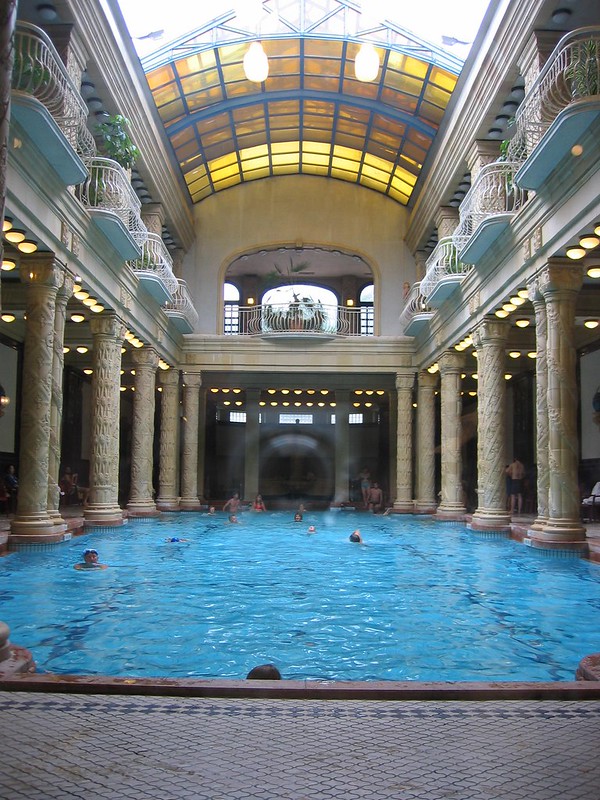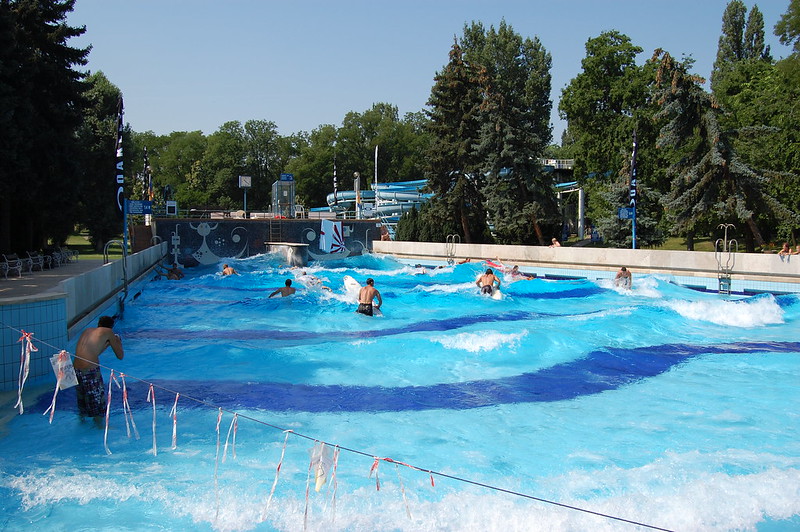Journey Through Budapest’s Bathing Culture: The Baths, Pools, and Thermal Springs
Budapest, known for its abundant mineral-rich hot springs, has a unique bathing culture shaped by centuries of tradition. With a total of 31 affordable spa-water pools and thermal baths, the city offers visitors an unrivaled wellness experience deeply influenced by Turkish bathing customs and local traditions.
The rejuvenating waters: In Budapest, the people strongly believe in the social, psychological, and medical advantages provided by thermal baths. To start their day right, office workers often visit the public baths as early as 6 am. Alternatively, many prefer to unwind, recharge, and build up an appetite by visiting the baths at 6 pm, at the end of their day. Knowledgeable staff members are available in most baths to provide guidance on suitable pools and specialized treatments for specific ailments.
The warm and mineral-rich spa waters promote overall relaxation and offer relief for conditions such as post-traumatic stress, joint and muscle injuries, rheumatism, and menstrual pain. What makes Budapest’s public baths even more appealing is their excellent affordability.
The Turkish Influence
Traces of Roman thermal baths dating back to the 2nd century AD have been found in Óbuda. Still, the Ottoman occupation of the 16th-17th centuries truly established the bathing culture in Budapest. Four magnificent Turkish baths—the Rudas, the Rác, the Király, and the Komjády (formerly known as Császár)—still operate today. These baths share a distinctive design: a domed, octagonal thermal pool surrounded by smaller dome-covered pools with varying temperatures. The Rudas Baths and Király Baths are particularly noteworthy for their beauty.

After the Turks
The late 19th and early 20th century saw a new wave of bath constructions in Budapest, aligning with the city’s golden age. The Neo-Classical Lukács Baths, Széchenyi Baths—the largest bathing complex in Europe—and several others were established during this period. These establishments typically offer thermal pools, saunas, steam rooms, professional massages, and even medicinal mud and sulfur baths.
Spa Hotels
Budapest is home to a few luxury hotels providing various wellness facilities. The historic Gellért Hotel and Baths Complex, Danubius Health Spa Resort Margitsziget, and the Continental Zara are just a few examples. These establishments combine luxurious accommodations with extensive wellness services, including swimming and thermal pools, steam rooms, saunas, massages, and cosmetic treatments.

Swimming as Sport
Budapest also offers facilities for sports swimming, with venues like the Hajós Olympic Pool complex on Margaret Island. Hungarian swimmers have achieved great success in international water sports, contributing to a local culture that values swimming both for recreation and as a competitive discipline.
A Day at the Strand
Budapest’s strands provide a comprehensive bathing experience with a festive atmosphere. Outdoor swimming and thermal pools, sunbathing areas, trampolines, games, and snack bars are standard amenities at these popular destinations. The Palatinus Strand on Margaret Island and the Dagály Strand complex are among the city’s most visited strands.

From its historic Turkish baths to modern spa hotels, Budapest’s bathing culture offers diverse wellness experiences. Whether seeking therapeutic relaxation, a competitive swimming environment, or a lively day at the strand, Budapest is a city where wellness and history flow together like the waters of its cherished hot springs.